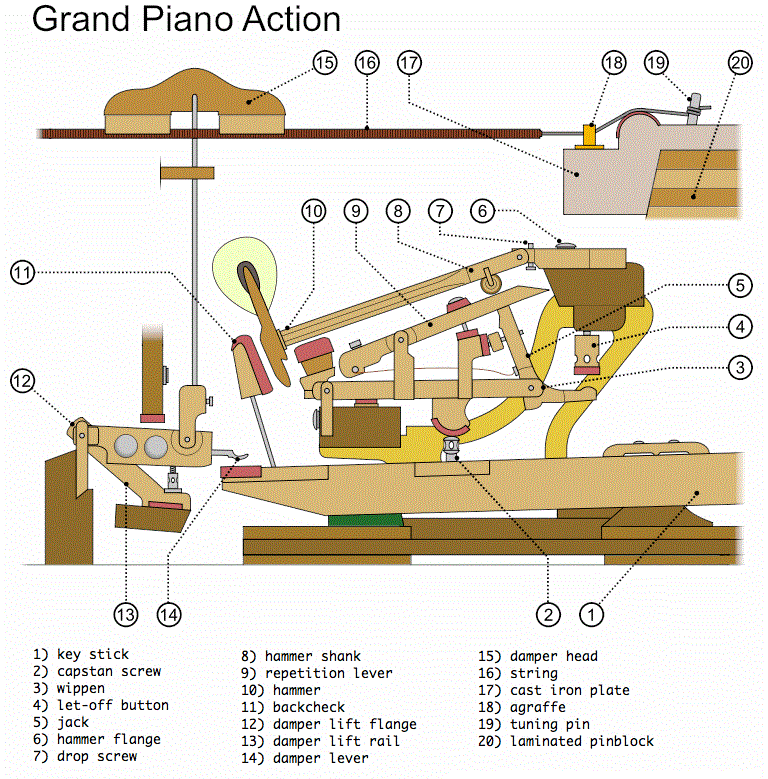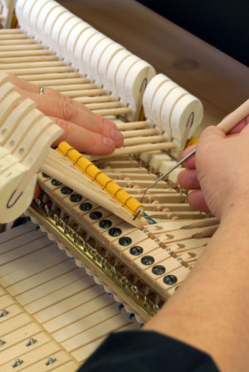Rielley Piano
Call us: 630-667-6053
Cost of Action Regulation Services - $125 per hour
Several factors can determine this. The intensity and number of hours your instrument is played, and climatic conditions are a few determinants. A piano kept in relatively consistent conditions which are neither too wet nor dry, optimally at a temperature of 68 degrees Fahrenheit and 42 percent relative humidity, will require less adjustment.
If your instrument displays a lack of sensitivity or a decreased dynamic range, it is a candidate for regulation. If you notice that the keys are not level (some higher or lower than the rest), the touch is uneven, or that the keys are sticking, the need for regulation is indicated.
No amount of practice can compensate for a poorly maintained action. Poor legato touch, chord playing where all notes of the chord don't speak clearly, a gradual loss of subtlety in phrasing and an inability to execute quick passages or note repetitions evenly may be the fault of the piano -- not the player.
Action Regulation Services
As a conscientious piano owner, you probably have your piano tuned regularly. You may, however, notice a deterioration of its performance despite regular tuning. It's important to note that tuning is only the adjustment of the system of strings and pins that determines the pitch of each string. Your piano also requires a periodic servicing called regulation, which attends to the mechanical parts which cause strings to sound when keys are played and affect the sound through use of the pedals.
What is Piano Regulation?
Regulation is the adjustment of the mechanical aspects of the pianos to compensate for the effects of wear, the compacting and settling of cloth, felt, and buckskin, as well as dimensional changes in wood and wool parts due to changes in humidity.
All upright and grand pianos need periodic regulation to perform their best. Frequency of regulation is dependent upon amount of use, exposure to climatic changes, and the instrument's quality, age and condition. New pianos may require regulation in their first year because settling and compacting of parts sometimes necessitates adjustment.
How Often Should My Piano Be Regulated?
Regulating a piano may take as little as 3 or 4 hours or it may take as long as 2 full days. This depends on how badly off the piano is and if any repairs are required before the regulation can be begun. With a brief examination of the piano, we can offer you several options based on your piano's needs, the player's needs, and the finances you are willing to invest in the instrument.




